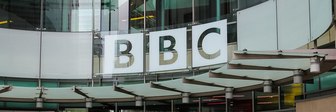In the wake of Chancellor George Osborne's 'grim' speech, John Humphrys considers our economic prospects
George Osborne has delivered one of the grimmest statements any Chancellor of the Exchequer has had to make to the House of Commons in living memory. We knew things were bad but he told us they were going to get worse and stay that way for longer. And he warned that they could turn out to be even more dire than he was predicting. His opposite number, Ed Balls, accused him of 'colossal failure'. How much is all this the Government’s fault and is it responding in the right way?
In some respects, what mattered most in Tuesday’s announcements was not what the Chancellor himself had to say. Rather, it was the forecast published by the Office for Budget Responsibility that really took people’s breath away. The OBR is the body set up by Mr Osborne when he first came into power with the task, among other things, of making independent forecasts of where the economy is heading, which provide the basis on which the Government takes decisions about spending and taxing.
The OBR has slashed the forecasts it made as recently as last March. This year it reckons the economy will grow at only 0.9%, half what it thought would be the case back in the spring. Next year’s growth rate has been halved too, to only 0.7%. It sees more cheerful times in the subsequent two years – 2.1% growth in 2013 and 2.7% in 2014, although virtually everyone takes forecasts that far ahead with a pinch of salt.
The main reason the OBR has given for the darkening of our economic prospects this year and next is that inflation has been higher than expected. In particular, oil prices have been much higher. With people’s incomes failing to keep pace with the higher costs that flow from oil being more expensive, the result is that consumers have been spending less than expected. If people don’t spend, the economy can’t grow. In addition, the trouble in the Eurozone, our main export market, has stifled growth in our exports.
Even more alarmingly, the OBR now thinks that the potential of the economy to grow over the medium term is much less than it had previously thought. In other words, there isn’t the spare capacity available in the economy for us to be able to engage in a spurt for growth to get us out of our troubles. What lies behind this piece of bad news is the realisation that the financial crisis of three years ago has done much more permanent damage to the economy than previously realised.
What all this means is that the outlook for everyone is far worse than we thought even a few months ago. By 2015 we will be between 10% and 15% worse off than we had expected to be. Unemployment will continue to rise to not far short of three million. And with less economic growth, the Government will have lower tax revenues and will have to raise more in borrowing.
The Chancellor had hoped that he would have succeeded in eliminating the so-called ‘structural deficit’ in the Government’s finances – the part that would not disappear automatically with faster economic growth – by 2015, the planned date of the next election. Now he admits he won’t achieve it before 2016/17. That means he already knows that he will have to fight that election acknowledging that he will be continuing to axe public spending in the first two years of the next parliament. The number of public sector workers set to lose their jobs has risen from 400,000 to 710,00. All in all, it means that we are in for a total of about seven years of austerity.
In the light of all this the Shadow Chancellor, Ed Balls, claimed that the Chancellor’s strategy had been a colossal failure. Labour had always argued, he said, that the Government’s plan for cutting the deficit was self-defeating because, by trying to reduce it too fast and too deeply, the Government risked choking off the demand in the economy necessary for it to grow. The result would be that the deficit would get bigger not smaller. So, at a time when consumers were being hit by higher inflation, it had been wrong to put up VAT. His analysis had been proved right, he said: the Government was now having to borrow £158bn more in the years ahead than it had itself forecast when it first came into office.
The Chancellor retorted that it seemed odd for Labour to be arguing that the solution to a debt problem was to borrow even more. He claimed that the tough line the Government had taken over deficit reduction meanbt Britain’s interest rates were far lower than those of many of our competitors and to relax the deficit reduction programme now would risk pushing them up again in a way that would be harmful to economic growth.
Whatever the truth of these arguments, the worsening economic prospects have forced the Government to take measures to shore up its finances in the longer term. The state pension age, already due to go up to 66 in 2020 will now rise to 67in 2026. Public sector pay, already frozen, will be allowed to rise by only 1% after the freeze ends and the Government wants to start consultations on ending national wage bargaining in the public sector.
The Chancellor did, however, announce some measures to promote economic growth, including a scheme to help guarantee bank loans to small businesses and getting pension funds to invest in public sector infrastructure projects. He also jiggled about with the money he was already due to spend in order to give relief to motorists by postponing the rise in petrol duty from January to August, providing more money for free schools, nursery places and housing and allowing pensions to rise fully in line with inflation. But some of this is to be paid for by cutting tax credits to working families. This led to his being accused of hitting the poor to pay for such schemes. And politically he was mocked for engaging in the very thing he used to scorn Gordon Brown for doing: indulging in 'initiativitis', or blinding the public with new schemes that looked impressive but in the end had very little effect.
What is perhaps most sobering of all is that the forecasts made by the OBR and the plans laid by the Chancellor on the basis of them suppose that the Eurozone will sort out its problems. But it is far from clear that this will happen. Indeed, there is an increasing fear and expectation that the crisis in the eurozone could veer out of the control of European governments in the weeks and months ahead. Mr Osborne admitted that if this turned out to be the case, we would all face 'a much worse outcome' than the already bleak one about which he was warning us.
What’s your view?
- Are you surprised that the economic outlook is now looking so much worse than it did a few months ago?
- To what extent do you blame the worsening situation on the Government’s policies?
- For example, do you think the Chancellor should or should not have raised VAT at the beginning of this year?
- Do you think the Government should be relaxing its deficit-cutting programme or sticking with it?
- Do you think Labour has a better approach to the economy or do you think the specific measures the Chancellor has adopted to try to boost growth are well-judged?
- Do you support his decisions to raise the pension age, to squeeze public sector pay and to cut tax credits for working families?
- And how optimistic are you that the Eurozone will manage to sort out its own problems and thus avoid making our own prospects even worse?







